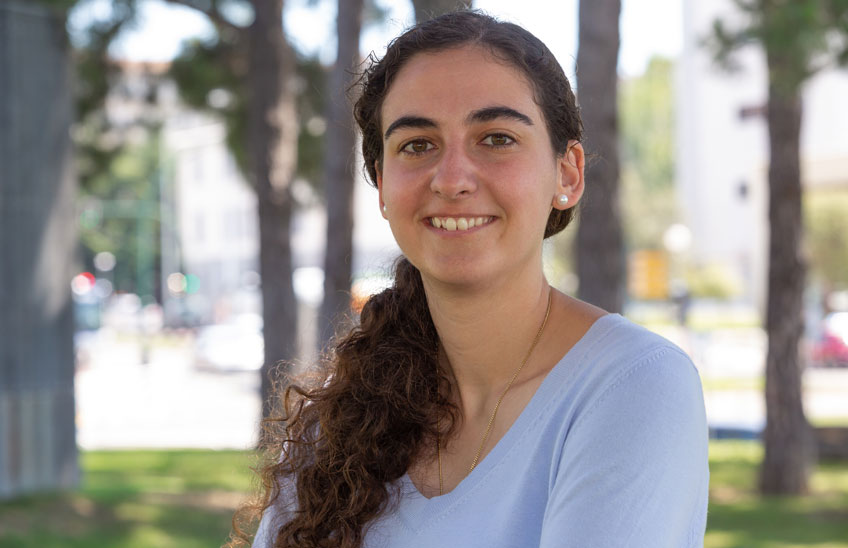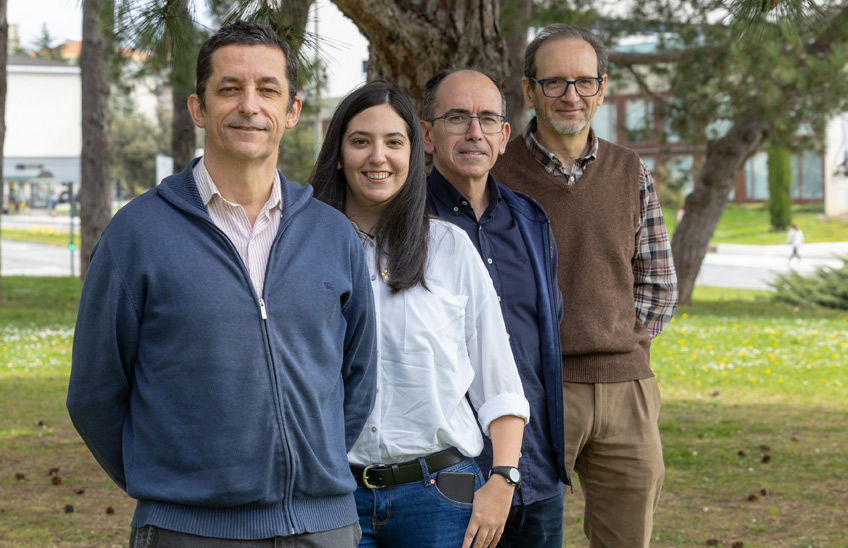A study in Bértiz and Napal sheds light on the training of plant communities.
The research developed at the University determines how some biotic and abiotic factors influence the training of these communities.

27 | 07 | 2022
Plant communities are a collection of plant species living in the same space and time. Ecologists study how these communities are formed and what factors influence the selection of different plant species in the community. On this basis, Mercedes Valerio Galán (26 years old) has developed her doctoral thesis at the School of Sciences of the University of Navarra under the direction of Dr. Ricardo Ibáñez (University of Navarra) and Dr. Antonio Gazol (high school Pirenaico de Ecología -CSIC).
The central topic of the research developed by Mercedes has been to understand which abiotic (microclimate or microtopography) and biotic (plant-plant interactions) factors influence the training of two plant communities in Navarra in order to obtain a better knowledge to improve their conservation.
On the one hand, the researcher has studied a beech forest located in the Señorío de Bértiz Natural Park to see "how the herbaceous communities of the forest respond to changes in soil moisture or the availability of light along the space, and how they behave against the training of clearings by tree fall over time," says Mercedes. The main conclusion of this study was that shade-adapted species can remain in the herbaceous stratum for up to 10 years after the opening of a clearing, i.e., the plant communities around beech forests need more than 10 years to change significantly.
The other part of the research has been the study of a Mediterranean grassland in the town of Napal to know how fertilization with sewage sludge, plant interactions, temperature and precipitation influence grassland communities. "We have been able to verify that fertilization with sewage sludge has a negative effect on the Mediterranean grassland communities as it favors the skill between species, reduces the issue of species in the community, and causes the abundance of each species to vary greatly over time".
Other conclusions drawn from this research are that temperature and precipitation influence annuals, perennials and woody shrubs differently. "Summer drought negatively affects annuals and woody shrubs, but not herbaceous perennials; and low winter temperatures negatively affect only annuals."
According to Mercedes, the future of this research involves increasing the programs of study at a temporal level in Bértiz, and analyzing the effects that climate change could have on the various types of species in the Mediterranean grassland. "We have more tools to predict how the two types of communities studied will respond to future environmental changes, in the framework of global change, and to favor the conservation of these communities of high ecological value."
Mercedes Valerio Galán holds a degree in Biology (2017), Master's Degree in Biodiversity, Landscapes and Sustainable management (2018) and a PhD from the School of Sciences of the University of Navarra (2022).
Bibliographical references
→ Valerio, M., Ibáñez, R., Gazol, A., Götzenberger, L. (2022). Long-term and year-to-year stability and its drivers in a Mediterranean grassland. Journal of Ecology, 110: 1174-1188. https://doi.org/10.1111/1365-2745.13861.
→ Valerio, M., Ibáñez, R., Gazol, A. (2021). The role of canopy cover dynamics over a decade of changes in the understory of an Atlantic beech-oak forest. Forests, 12(7): 938. https://doi.org/10.3390/f12070938.


